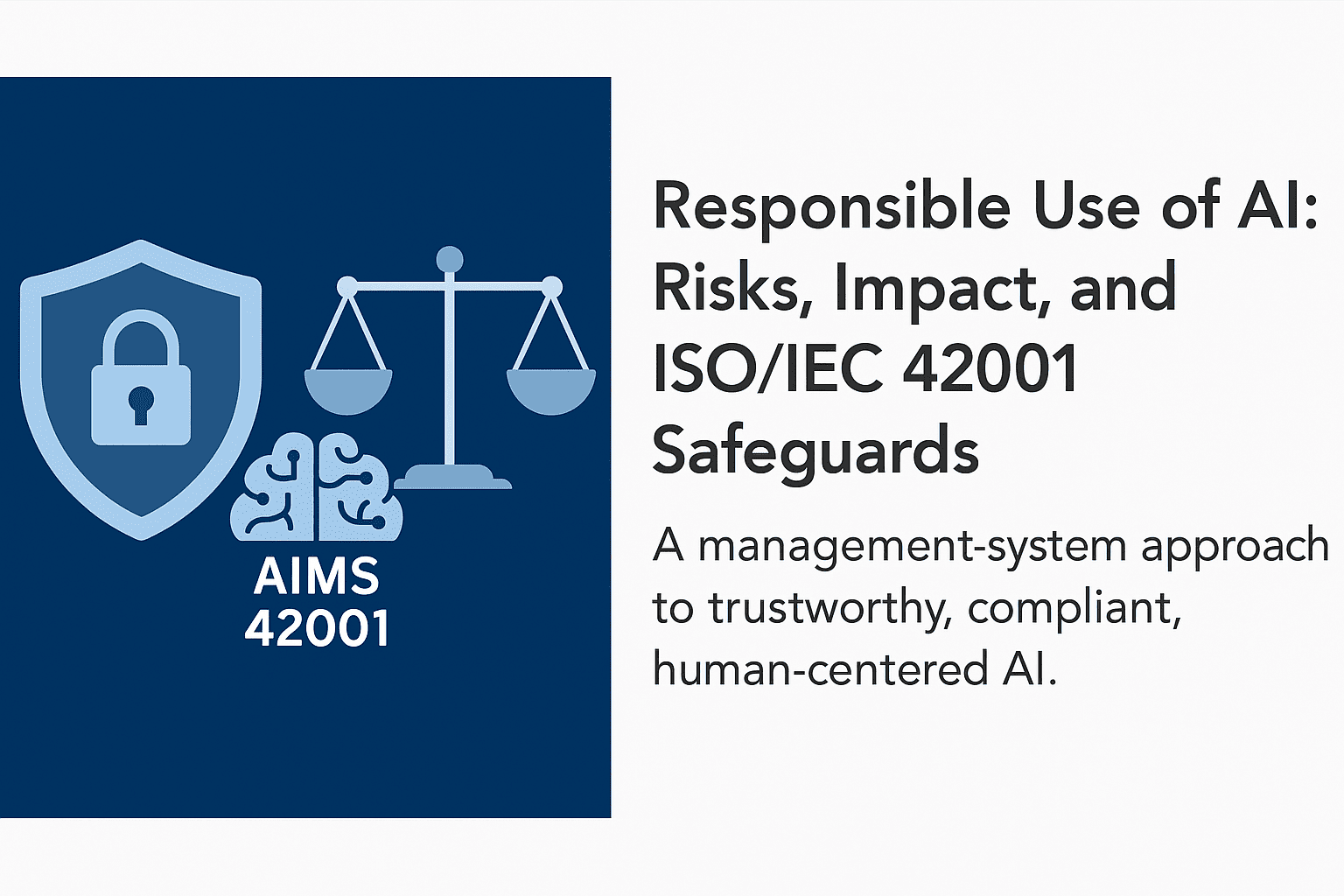Artificial Intelligence (AI) is reshaping industries—from automating operations to transforming customer experience and unlocking new business models. Yet the same power introduces new risks: bias, opacity, privacy breaches, security threats, and regulatory non-compliance. The question is no longer whether to adopt AI, but how to govern it responsibly.
What “Responsible AI” Means
- Fair & unbiased decisions grounded in representative data and active monitoring.
- Transparent & explainable models and outcomes suitable for the audience.
- Accountable ownership, roles, and auditability across the AI lifecycle.
- Secure & privacy-preserving handling of data and models.
- Human-centered design that respects safety, well-being, and societal impact.
Key Risks of Unregulated AI
- Bias & discrimination leading to unfair outcomes in hiring, lending, healthcare, etc.
- Privacy violations and weak consent management, clashing with GDPR/DPDPA and sectoral laws.
- Cyber threats (model theft, prompt injection, data poisoning, deepfakes, misuse).
- Safety & reliability failures from poorly tested or unmonitored systems.
- Reputational & regulatory impact including fines, loss of trust, and market restrictions.
Business & Societal Impact
Irresponsible AI creates financial losses, litigation, and operational disruption for businesses—and erodes public trust, amplifies inequality, and spreads misinformation at a societal level. AI risk is now a boardroom priority.
How ISO/IEC 42001 (AIMS) Safeguards AI Adoption
ISO/IEC 42001:2023 defines an Artificial Intelligence Management System (AIMS)—a management-system framework (like ISO/IEC 27001 for security) tailored to AI. It helps organizations:
- Establish governance: policies, roles, competencies, and lifecycle ownership for AI.
- Assess & treat risk: structured risk registers, controls, and acceptance criteria for AI systems.
- Ensure transparency & accountability: documentation, traceability, and audit trails.
- Protect data & models: security controls, privacy-by-design, and robust access management.
- Operationalize ethics: impact assessments, human oversight, incident management, and red-teaming.
- Integrate with existing MS: aligns with ISO 27001 (ISMS), ISO 22301 (BCM), ISO 9001 (QMS), and privacy laws.
- Drive continual improvement: KPIs, monitoring, post-deployment review, and management audits.
Practical First Steps
- Inventory AI use-cases and data/model flows across the organization.
- Run an AI risk & impact assessment (bias, privacy, safety, security, compliance).
- Define governance (policy, RACI, approval gates, human-in-the-loop where needed).
- Implement technical & process controls (dataset QA, model cards, access control, monitoring).
- Train teams on responsible AI, secure usage, and incident reporting.
- Plan audits and continual improvement against ISO/IEC 42001 requirements.
ISO/IEC 42001 turns good intentions into an auditable, repeatable program that protects people, data, and your brand.
Ready to Get Started?
autheraAI can help you perform a readiness assessment, build your AIMS documentation stack, and prepare for ISO/IEC 42001 certification.
